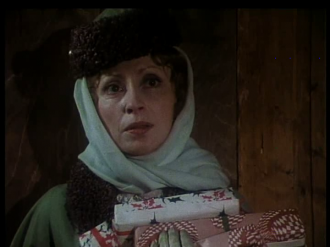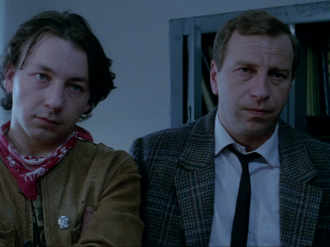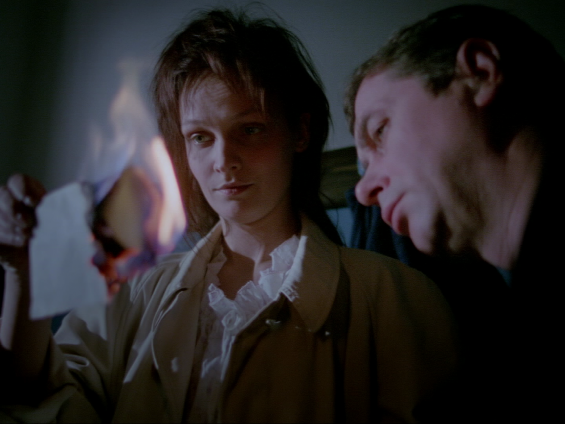- Duration:
53’
- Genre:
DRAMA
- Resolution: HD
- Year: 1988
This
original series illustrating the Ten
Commandments has firmly established Kieślowski’s international reputation.
Each of the presented stories is linked to the theme of a particular
commandment. Because of its form, all viewers are deeply moved by these movies,
regardless of their views or religious beliefs. Asked on numerous occasions why
he had chosen such a hard subject, the director replied curtly: “It’s
worthwhile to be reminded of these ten very well written sentences. There needs
to be a point of reference, a definitive criterion (...)”. The series won
numerous awards at film festivals and is one of the most recognizable Polish
productions.
The Decalogue films
are basically intimate dramas: two main characters and one character played by
Artur Barciś, absent and reappearing in different roles are enough to make the
story appealing to the emotions and imagination of viewers. The fourth part of the
cycle begins on Easter Monday. Michał, according to the tradition (as only such
gestures are left from the Easter celebrations) plays water tricks on his
adult daughter. A bit later, he goes abroad on a business trip, leaving, probably
on purpose, an envelope with a disturbing message: ‘Open after my death.’ There
is another envelope inside addressed by Anka’s mother when she was close to
death, apparently writing about an important secret. When the woman is about to
open the letter, the look of an oarsman (Artur Barciś) whom she meets,
apparently not without reason, stops her from crossing the uncrossable
barrier. Anka’s orderly life is shattered by suppositions and uncertainty: if
Michał is not her father, is love other than daughter’s love towards his father
possible? The mystery of melodrama remains unsolved; the late mother’s letter,
read (or unread) – or maybe only its copywritten by her daughter? – is burnt.
The opening sequence showing both characters standing by the windows which, by
the way, are important motifs in the whole cycle – before or after? in the same
flat or not? – constitutes a similar mystery. Is it the reason why the doctor,
the neighbour known from The Decalogue,
Two, bearing inside a drama of love broken prematurely appears on the
screen?





